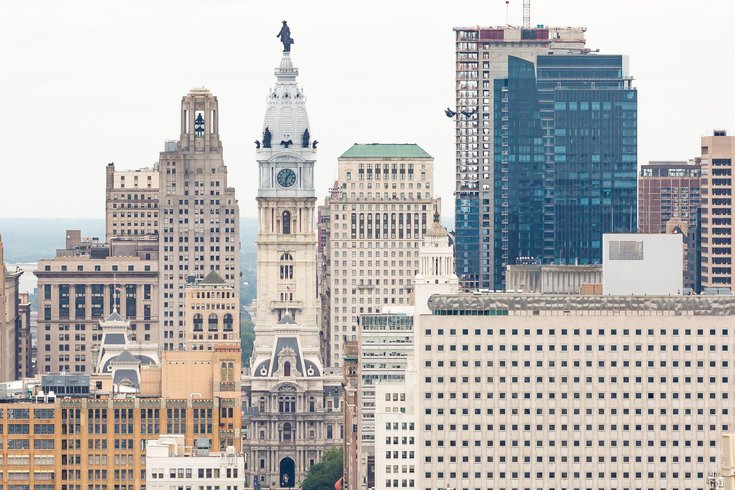
April 27, 2020
 Thom Carroll/for PhillyVoice
Thom Carroll/for PhillyVoice
Philadelphia Health Commissioner Dr. Thomas Farley pointed to a lower rate of coronavirus infections that indicates the city has now moved beyond the peak of the epidemic, assuming social distancing guidelines continue to be followed.
Philadelphia officials are optimistic that the city has passed the peak of the coronavirus epidemic, marking an important step toward reducing the infection rate to a point where it can reopen.
The city reported 302 additional confirmed cases of COVID-19 on Monday, bringing the total to 12,868. While the lower daily total is influenced by reduced reporting over the weekend, Health Commissioner Dr. Thomas Farley said the trend over time is starting to look better.
"When we look back over the last couple of weeks, when we look at the cases occurring in the region, it's looking like we are past the peak of this epidemic, that we're now on the downslope," Farley said. "We're not going down quickly, but the number of daily cases that we're getting seems to be going down on average."
Farley said that the city's reproductive rate — the average number of people that someone with the virus infects — has fallen since late March.
"If people pass the virus on, on average, to less than one person, even slightly less, even 0.99, then because some people didn't pass it on to anybody, then the number of daily cases declines," Farley explained. "The falling case counts that we're seeing are a sign that the reproductive rate is less than zero."
That number must remain below zero in order for the epidemic to end.
"The good news we have today is not a reason for people to go back to the old way of living. Just the opposite," Farley said. "It's a reason for us to continue to do what we're doing now. In the competition against this virus, we're showing that we can win, but the game isn't over yet. Not by a longshot."
Pennsylvania Gov. Tom Wolf released specific targets last week for the number of daily new cases various counties will need to hit in order to reach the next phase of reopening. Philadelphia must average just 57 cases per day over a 14-day stretch to hit its target.
When the plan was released, the 14-day average in Philadelphia was still as high as 592 cases per day, though it is beginning to come down.
The situation in the city's hospitals also is showing some improvement, Farley said. There were 985 COVID-19 patients receiving treatment in Philadelphia hospitals and 1,805 receiving treatment in hospitals across the region.
"There may be signs we are getting past the peak for our hospitalized patients as well," Farley said.
The city reported an additional 12 deaths from COVID-19, bringing the total to 484. With the delay in weekend reporting, more fatalities likely will be announced in the days ahead.
Farley said the city is still not prepared to revise testing guidelines to open availability more broadly. Shortages of testing supplies still limit Philadelphia to testing approximately 1,500 people per day, or about one in 1,000 residents. Until that number can rise, priority still will be given to health care workers and those who are most vulnerable to serious illness.
Despite the positive outlook, Farley said the city still is not prepared to project dates for reopening.
"I know this is really tough for people who are cooped up," Farley said. "The worst thing about it is the uncertainty. They don't know when this is going to happen. I would love to be able to say, 'Well, it's going to be on this date.' But I really don't know. I'll just say what I've said before. It will be some number of weeks, but I can't tell how many it will be."